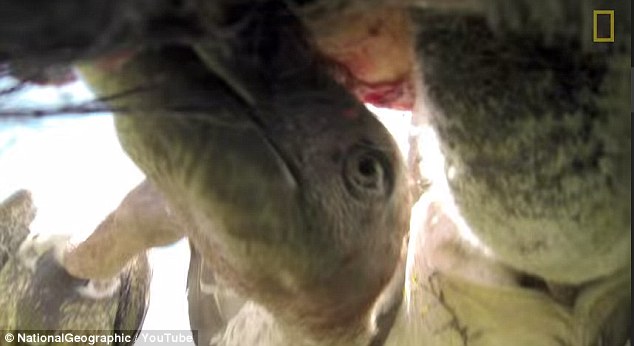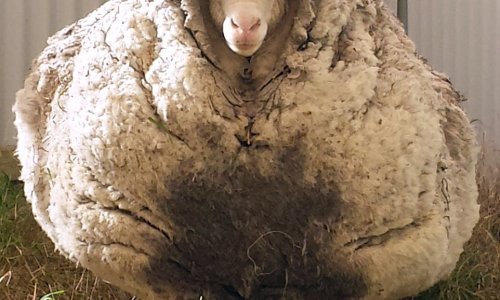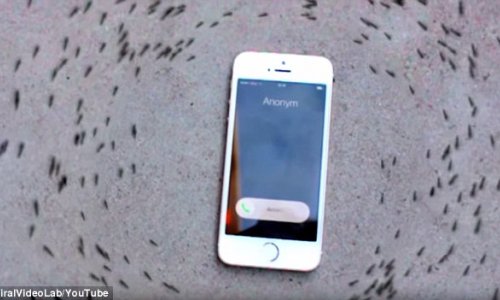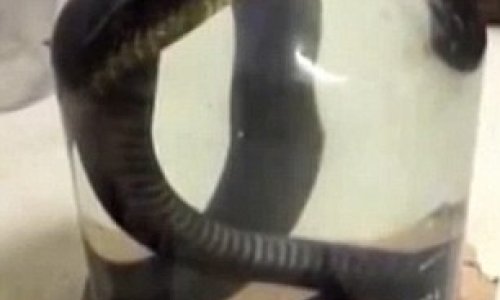It is a terrifying insight into what it's like to die on the Serengeti.
National Geographic magazine placed a camera inside a wildebeest carcass on the Serengeti.
Within seconds, nature took its course and vultures descended to rip apart the corpse.
The video was shot by photographer Charlie Hamilton James while on assignment for National Geographic magazine.
He put a GoPro inside a wildebeest carcass on the Serengeti.
It comes amid increasing concern for the vulture.
In some parts of the world, vulture populations have declined by up to 95 percent, mostly from habitat loss and poisoning by humans.
A demand for vulture parts in witchcraft, as well as poisoning and urbanization, is thought to be a major factor.
Darcy Ogada, assistant director of Africa Programs for the Peregrine Fund, an Idaho-based nonprofit dedicated to saving birds of prey, predicts these natural recyclers, which breed slowly and need years to mature, could be extinct in Africa in the next 50 to 100 years.
'The impact of their declines are huge,' Ogada says, whose research is funded by National Geographic.
'They're providing such a huge service to such a huge population.'
The feathery scavengers have one of the toughest guts on the planet.
Recent analysis of two species of North American vultures showed that the birds possess a ferociously acidic digestive system and intestines loaded with two fiendish kinds of bacteria.
In the black vulture and the turkey vulture, this gastrointestinal one-two punch effectively knocks out much of the potential disease-causing microbes populating the carrion - animal carcasses - that these birds eat, the researchers said.
'The vulture gastrointestinal passage is a hostile environment,' said microbiologist Lars Hestbjerg Hansen of Aarhus University in Denmark, one of the researchers in the study published in the journal Nature Communications.
'These vultures will consume virtually any dead vertebrate - mammal, bird, snake, fish.
'They prefer recently deceased organisms rather than extremely putrid carcasses. For example, day-old road-killed deer are perfect,' said ornithologist Gary Graves of the Smithsonian Institution's National Museum of Natural History in Washington, another of the researchers.
The researchers examined the community of microbes, or microbiome, living in the gut of 50 vultures of the two species.
The most common gut bacteria - Clostridia and Fusobacteria - turned out to be microbes that are widely pathogenic to other animals.
For example, Clostridia can cause a world of woes - botulism, gangrene and tetanus - in people.
The researchers also found that the stomach acid of vultures is very strong and kills a good deal of the bacteria gobbled up by the birds with the rotting meat.
'The majority of the food-ingested microbes will not survive these harsh conditions,' said University of Copenhagen microbiologist Michael Roggenbuck, another of the researchers.
(dailymail.co.uk)
www.ann.az
Follow us !











